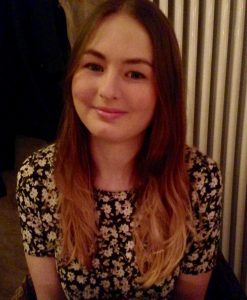I recently returned to fifth year after taking a year out to do a Masters in Public Health at the University of York. I return for my final year of medical school with a mixture of apprehension and excitement, but reflect on my intercalation year as a great experience. There are arguments for and against intercalating and, whilst it is not for everyone, there are many reasons to consider doing an intercalated degree.
 I chose not to intercalate after second year because I wasn’t sure which subject to choose out of the many options on offer. However, after a couple more years and some careful consideration, I decided to intercalate in a subject that had always interested me: public health. This is generally the first obstacle when deciding whether to intercalate: which subject to choose? When considering intercalating, think about your interest in the subject matter in particular. You might also consider if it is relevant to any future career plans, but it is perfectly acceptable to intercalate for pure interest. I chose to do public health because it is a broad area that involves the study of disease on a population level and can offer a good grounding in research methods.
I chose not to intercalate after second year because I wasn’t sure which subject to choose out of the many options on offer. However, after a couple more years and some careful consideration, I decided to intercalate in a subject that had always interested me: public health. This is generally the first obstacle when deciding whether to intercalate: which subject to choose? When considering intercalating, think about your interest in the subject matter in particular. You might also consider if it is relevant to any future career plans, but it is perfectly acceptable to intercalate for pure interest. I chose to do public health because it is a broad area that involves the study of disease on a population level and can offer a good grounding in research methods.
With the course chosen, I then considered where to study. I decided upon the University of York because of the highly commended Department of Health Sciences, the course content, and the location. I like York as a city and could see myself living there happily without uprooting myself completely to another part of the country. It is important to consider where you can see yourself living, as well as other priorities such as proximity to family and friends, rental expense, and size of the city or town.
With the course applied for, I set off for York excited for a different year. Before I had met my coursemates, I was convinced that everyone would be significantly older than myself and may not wish to socialise with me. I thought I would have to find friends of a similar age through societies etc. This proved to be wrong. I think the words ‘Masters’ and ‘Postgraduate’ conjured up images of maturity. However, the majority of students were a similar age to me, having recently finished their undergraduate degrees. The mature students were great too, and I am embarrassed at my initial misconceptions. What followed was a year full of friendships, laughter, and memories that will never be forgotten. My fellow coursemates were from a variety of backgrounds: pharmacology, biomedical sciences, medicine, and more; and from different parts of the world, not limited to the USA, Republic of Ireland and Chile. I made many friends during this year and hope that I will keep in touch with many of them in the years to come.
The course modules themselves were fascinating. It was a different style of teaching from medicine: smaller groups, discussion, and more in-depth group work. I enjoyed this teaching style and it allowed me to get to know my coursemates better. I even found myself drawn to a subject I had not considered before: statistics. I thought I wouldn’t like statistics because I hadn’t done A-Level maths or encountered the subject much before. However, I took all three statistics modules on offer (one mandatory) and my dissertation was based around statistics and regression analysis. Without intercalating, I would not have gained these skills or experience in statistical packages. I found essays particularly challenging, given the more exam-based assessment in medicine, but I feel that I improved over the year and was able to work on essay structure. This culminated in my 16,000 word dissertation, a 60 credit independent study module supervised by staff in the department.
Having never encountered a dissertation, I was apprehensive and unsure of what this involved. However, with help from my supervisors, caffeine, and much reading, I worked my way towards a finished dissertation. Sometimes I was unsure of what I was meant to be doing but it became clearer throughout the dissertation process and is even clearer in hindsight (as it always is!). The dissertation was the toughest part of the Masters degree. Having to understand and apply the taught programme in a coherent, structured way is easier said than done. It is challenging, but the sense of achievement when you manage to print your dissertation (after several printer jams) and have it bound in hard copy is great. It may be one of the biggest pieces of work that you do and you should be proud of it.
Finally, intercalating made me consider my career plans. In particular, it exposed me to academic medicine, of which I had little knowledge before my intercalation. It has encouraged me to aspire to a career in academic medicine.
In summary, there may be some downsides to intercalating: you won’t be in your ‘original year’ and it will cost a bit more (living costs and part-fees if masters). However, you can study a subject of great interest to you in more depth. You can consider your career options for the future. You will gain new skills and have new experiences. And importantly, you will meet new people, some of whom may become lifelong friends.
 Kathryn Harvey is a fifth year medical student recently returned from intercalation. She has a particular interest in public health and medical research. In her spare time she enjoys hillwalking, reading, and travelling.
Kathryn Harvey is a fifth year medical student recently returned from intercalation. She has a particular interest in public health and medical research. In her spare time she enjoys hillwalking, reading, and travelling.

